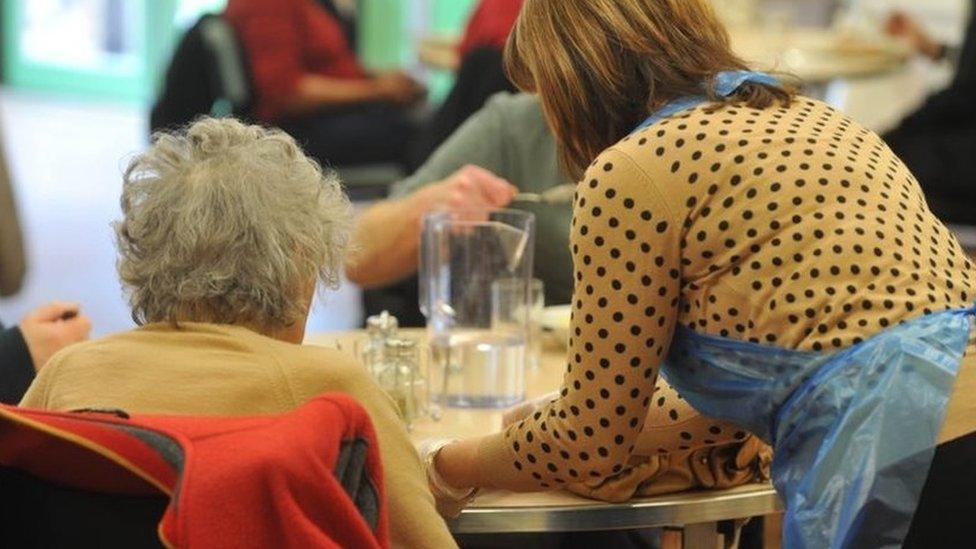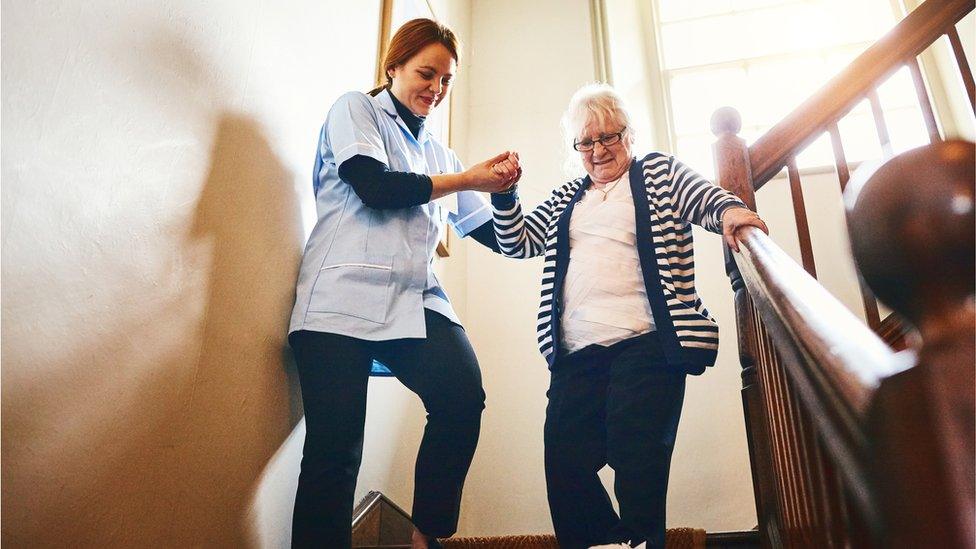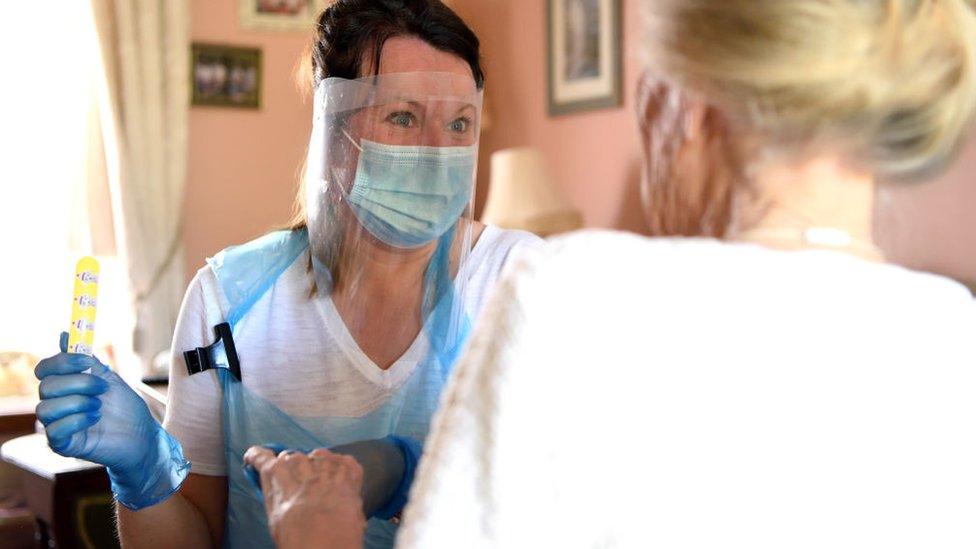Covid: Carer shortage 'biggest worry' for watchdog
- Published

More people could end up in care homes when they would be be better supported at home, said the care watchdog
More people could end up in residential care sooner than necessary because of issues recruiting home care workers, according to a watchdog.
In Care Inspectorate Wales' annual report, its chief inspector said recruitment and retention of staff was one of social care's "biggest worries".
Gillian Baranski said good progress made in Wales could "go backwards" because of the pandemic.
She added that receiving support at home was usually the best care option.
Providers and councils were doing everything they could, she added, but it was difficult in a competitive employment market.
"Unless social care is seen as an attractive option, it will not attract the people into it that we need and, of course, we're concerned," she said.
"We would be sad to see the good progress we've seen in Wales go backwards as a result of the pandemic. But these are some of the consequences of this terrible 18 months that it's only as we come into recovery we're seeing the full extent of it."

Recruiting carers faces competition from the hospitality and retail sector, says the watchdog
Ms Baranski warned the next six months were going to be particularly challenging for social care, as referrals could increase and "we need that workforce to deliver".
She said the "massive" drive to recruit in hospitality and retail had an impact on the sector.
"The default position then becomes unpaid carers. They do phenomenal work.
"Our fear is that unless people come into [the social care workforce], more and more people will end up in residential care earlier than they need to or, if they have multiple health issues, they'll end up in hospital."
She said she had not seen services close, but some care contracts had been handed back.
Unpaid carers have also called for clarity around the extra demands that could be placed on them.
Councils in Gwent have warned residents who receive community health and social care to expect possible changes because of the high demand on services and staff shortages.
Last month, families in Swansea were urged to carry out some nursing and caring duties to prevent services in the area from "reaching breaking point".
Swansea council and Swansea Bay health board issued a statement which said the staffing crisis was down to large numbers of care workers seeking employment in other sectors.
Carers Wales have said "exhausted" unpaid carers were deeply concerned about plans to reduce support.
The charity said councils needed to be clear about the proposed changes and when they expect service levels to be recovered.
Another issue highlighted in the annual report, published on Thursday, was the number of concerns raised with them.
They had increased from 1,736 in 2019-20 to 2,151 this year.

Pressure on care workers led one Welsh council to ask families to help out more with tasks in the home
Ms Baranski said the two main themes of complaints in adult and children services were around leadership and management, but the "most heart-breaking and prevalent" was around visitor access to care homes.
"That was probably the hardest issue and the one that has caused the most anguish," she said, adding that there was clear guidance on care home visits from Welsh government.
"Where we find that the guidance is not being adhered to for no good reason it is likely to prompt an inspection because people need to see their families. Families need to see loved ones," she said.
She said while it had been one of the hardest years, it also showed how "incredible" the sector's workforce had been: "Their commitment, their often selfless care and their very hard work has been inspirational."

IN MY SKIN: Binge watch our award winning coming-of-age drama
THE CASABLANCA: How a Cardiff night club changed our lives

- Published26 April 2020

- Published30 July 2021

- Published9 March 2021

- Published13 August 2020

- Published5 March 2019
